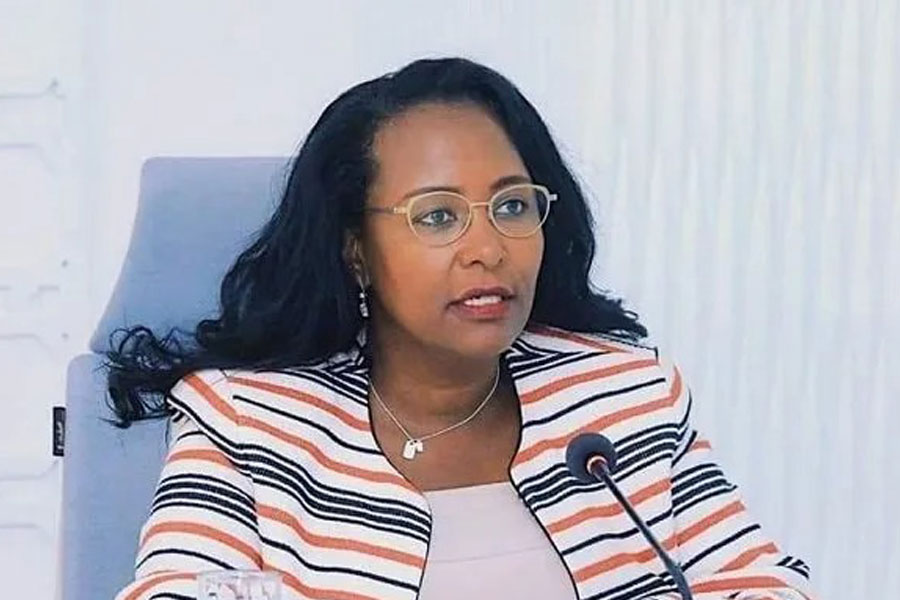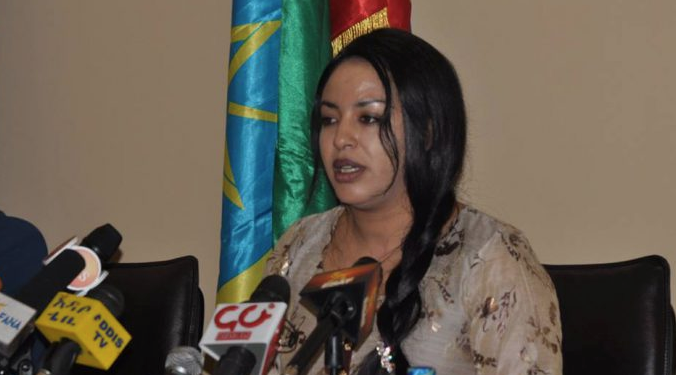
Parliament is wrestling with a contentious bill that would grant the Ministry of Justice sweeping powers to trace, investigate, and seize assets acquired through "unexplained means." The bill, debated by the Legal & Justice Affairs Standing Committee last week, co-chaired by Etsegenet Mengistu and Isa Boru, seeks to consolidate asset recovery provisions into a single legal framework to combat financial crimes more effectively.
Justice Minister Hanna Arayaselassie, recently appointed to a cabinet portfolio, pressed the urgency of addressing economic crimes and the proliferation of unexplained wealth.
"The absence of a strong legal framework has allowed individuals to take calculated risks, engaging in money laundering and capital flight," she told the Committee. "It's become a major concern."
If passed, the law will mandate the Ministry to initiate retroactive investigations into assets exceeding 10 million Br over a 10-year span.
Most controversially, the bill proposes measures allowing investigators to bypass privacy laws, including accessing bank accounts and emails without a court order. It also outlines provisions for undercover operations and international collaboration in asset recovery. A new department within the Ministry would manage the seizure and administration of recovered assets.
The Standing Committee debated provisions that would require individuals and entities to prove the sources of their "unexplained assets" within one month, with a possible six-month extension for complex cases. According to Minister Hanna, investigations could be initiated based on information from credible sources or financial intelligence services.
A particularly contentious clause allows the Ministry to freeze assets suspected of being linked to economic crimes for up to three years, with a court order. Critics cautioned that such extended freezes could lead to human rights violations, mainly if assets are later found legitimate.
The bill has raised eyebrows on the legislative floor and outside, with some legislators questioning the constitutionality of retroactive applications and whether sufficient data exists to support such probes. Critics argue that this concentration of power could lead to abuse.
Robel Tarekegn, legal head at Ethio telecom, expressed concern over potential misuse.
"It needs to be checked thoroughly," he said.
Bizuayeneh Gebregziabher, legal head of the Federal Civil Society Authority, acknowledged the bill's necessity in fighting corruption but expressed reservations about its retroactive nature.
"The law should govern future undertakings rather than applying to past activities," he said.
The bill also lowers the bar for asset confiscation by allowing federal authorities to act based on civil standards of proof without requiring a criminal conviction. The burden of proof of the legitimacy of assets shifts to individuals or institutions. Bizuayeneh warned that this could cause problems for those who acquired assets through informal yet legal channels.
"In some cases, it may be difficult to prove the legitimacy of assets," he told Fortune.
Ashenefech Abebe, vice president of the Federal First Instance Court, expressed concerns about the Ministry's overreaching authority, particularly about asset seizures.
"The mandate should belong to the courts," she argued.
Tesfaye Shamebo, head of the Federal Ethics & Anti-Corruption Commission’s Department, called for the establishment of an independent institution to handle asset seizures and limited the Ministry’s role to criminal investigations.
"Granting one agency control over both the investigation and asset management could lead to abuses," he said, emphasizing the need for separation of powers.
Financial institutions have also voiced apprehensions about the bill's potential impact on third-party rights.
Getachew Wake, vice president of the Development Bank of Ethiopia (DBE), warned that banks could lose control over collateral if assets are deemed illegally acquired.
"The bill overlooks the role of financial institutions," he said. "Banks could lose rights over collateral without due process."
According to Getachew, a policy gap that allows companies to register substantial capital from unknown sources exposes banks to risks if the bill passes. The absence of a reliable system for asset valuation further compounds his concerns.
Legal experts are questioning the law's capacity for fair enforcement.
Walelign Amare, a lawyer and member of the Ethiopian Lawyers Association, argued that legitimate wealth could be unfairly targeted.
"Owning property is a human right," he stated. "The law must be carefully drafted to avoid political misuse."
While the Ministry assured legislators that human rights would be safeguarded and that only individuals with significant disparities between income and wealth would be scrutinized, critics remained wary. Concerns echoed the lack of compensation for wrongful seizures and the potential disruption to legitimate economic activities.
Asset recovery laws have gained traction as tools to combat corruption and illicit financial flows. The Stolen Asset Recovery Initiative (StAR), a joint project of the World Bank and the United Nations, has assisted over 40 countries, including Ethiopia, in drafting such laws. The United Kingdom's Unexplained Wealth Order (UWO) is a similar measure that allows for civil confiscation of assets without a criminal conviction.
Experts warn that non-conviction-based asset recovery systems should be carefully implemented to ensure fairness and avoid injustice. According to Yonas Woldia, a lawyer, caution is needed.
"Individuals with no criminal connections could be unfairly targeted if the law is poorly crafted," he said.
Yalemtarik Shimeles, deputy director-general of asset recovery at the Ministry, defended the bill, claiming it aligns with international standards to combat money laundering and capital flight.
"We've thoroughly formulated the law," he insisted.
The Ministry's officials have acknowledged concerns over the retroactive application but reassured that the 10-year investigation period conforms with banking record-keeping practices.
"We'll review the 10 million Br threshold," said Belayhun Yirga, state minister for Justice.
PUBLISHED ON
Nov 09,2024 [ VOL
25 , NO
1280]

Fortune News | May 01,2022

View From Arada | Apr 27,2024

Fortune News | Sep 22,2024

Fortune News | Mar 23,2024

Fortune News | May 14,2022

Fortune News | Feb 04,2023

Fortune News | Jun 15,2019

Fortune News | May 04,2024

Fortune News | Sep 10,2021

Radar | Apr 01,2024

Dec 22 , 2024 . By TIZITA SHEWAFERAW
Charged with transforming colossal state-owned enterprises into modern and competitiv...

Aug 18 , 2024 . By AKSAH ITALO
Although predictable Yonas Zerihun's job in the ride-hailing service is not immune to...

Jul 28 , 2024 . By TIZITA SHEWAFERAW
Unhabitual, perhaps too many, Samuel Gebreyohannes, 38, used to occasionally enjoy a couple of beers at breakfast. However, he recently swit...

Jul 13 , 2024 . By AKSAH ITALO
Investors who rely on tractors, trucks, and field vehicles for commuting, transporting commodities, and f...

Oct 11 , 2025
Ladislas Farago, a roving Associated Press (AP) correspondent, arrived in Ethiopia in...

Oct 4 , 2025
Eyob Tekalegn (PhD) had been in the Governor's chair for only weeks when, on Septembe...

Sep 27 , 2025
Four years into an experiment with “shock therapy” in education, the national moo...

Sep 20 , 2025
Getachew Reda's return to the national stage was always going to stir attention. Once...